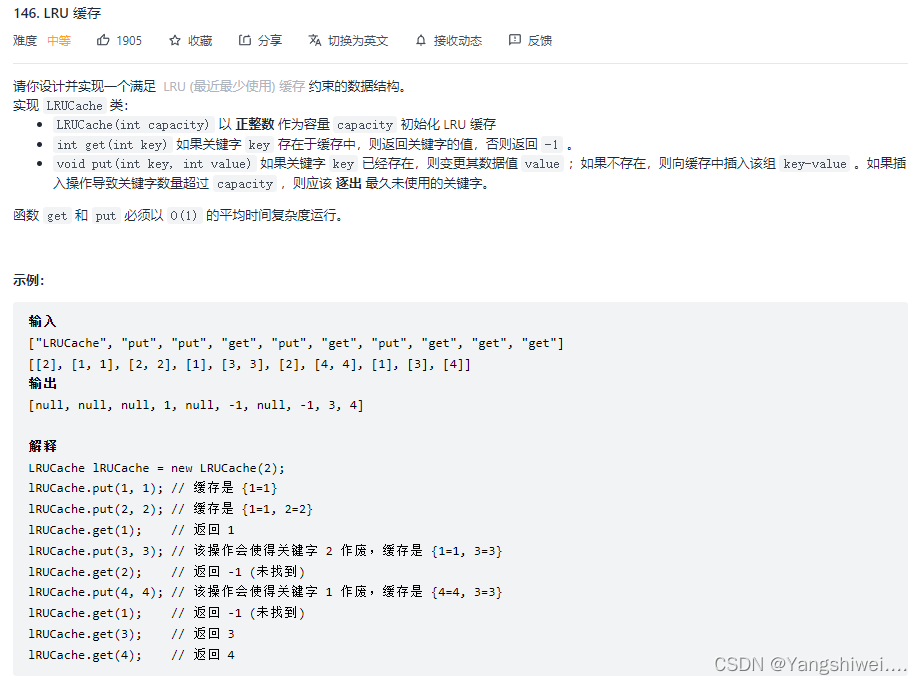题目:

?
分析:
可以用哈希表加一个双向链表来实现,size记录当前缓存中数据量,capacity存缓存中数据可以容纳的最大量,也是初始化类的时候带的入参,first,last两个节点分别代表双向链表的头和尾,使用尾插法插入数据,尾结点的前一个结点为最近使用结点,头结点的下一个结点为最近不常用结点,也就是LRU算法中被替换掉的那一个,hash负责存索引,如果哈希中有这个索引值,则他在缓存中,否则不在。
代码:
class LRUCache {
class Node{
int key;
int val;
Node next;
Node pre;
public Node(){}
public Node(int key,int val){
this.key=key;
this.val=val;
this.next=null;
this.pre=null;
}
}
HashMap<Integer,Node> hash=new HashMap<Integer,Node>();
int size;
int capacity;
Node first;
Node last;
public LRUCache(int capacity) {
this.size=0;
this.capacity=capacity;
this.first=new Node();
this.last=new Node();
first.next=last;
last.pre=first;
}
public int get(int key) {
Node n=hash.get(key);
if(n!=null){
Node pre=n.pre;
Node nex=n.next;
if(nex!=last){
nex.pre=pre;
pre.next=nex;
n.pre=last.pre;
last.pre.next=n;
n.next=last;
last.pre=n;
}
return n.val;
}else{
return -1;
}
}
public void put(int key, int value) {
Node n=hash.get(key);
if(n!=null){
Node pre=n.pre;
Node nex=n.next;
if(nex!=last){
nex.pre=pre;
pre.next=nex;
n.pre=last.pre;
last.pre.next=n;
n.next=last;
last.pre=n;
}
n.val=value;
}else{
if(size==capacity){
int k=first.next.key;
hash.remove(k);
first.next=first.next.next;
first.next.pre=first;
size--;
}
n=new Node(key,value);
n.pre=last.pre;
last.pre.next=n;
n.next=last;
last.pre=n;
hash.put(key,n);
size++;
}
}
}
/**
* Your LRUCache object will be instantiated and called as such:
* LRUCache obj = new LRUCache(capacity);
* int param_1 = obj.get(key);
* obj.put(key,value);
*/